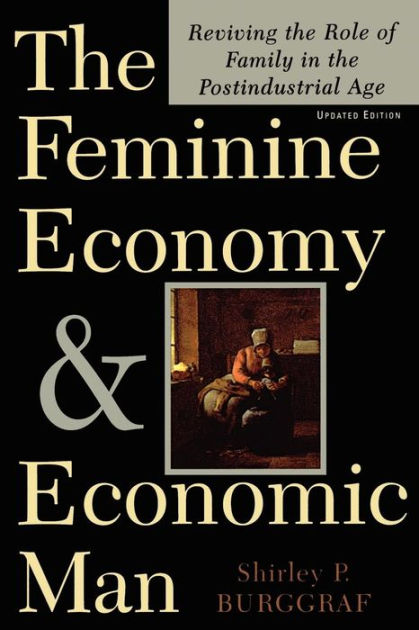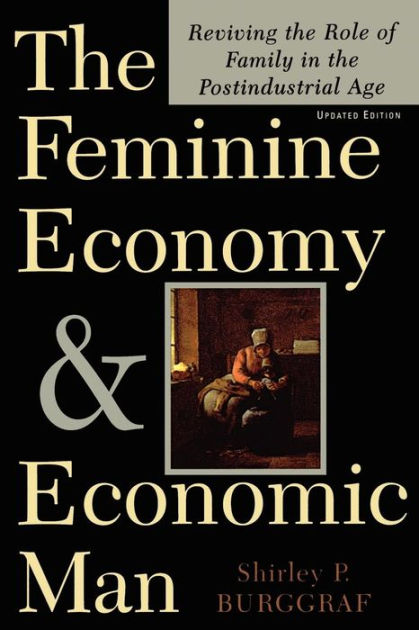By clicking “Accept,” you agree to the use of cookies and similar technologies on your device as set forth in our Cookie Policy and our Privacy Policy. Please note that certain cookies are essential for this website to function properly and do not require user consent to be deployed.
The Feminine Economy And Economic Man
Reviving The Role Of Family In The Postindustrial Age
Contributors
Formats and Prices
Price
$21.99Price
$28.99 CADFormat
Format:
Trade Paperback $21.99 $28.99 CADThis item is a preorder. Your payment method will be charged immediately, and the product is expected to ship on or around December 29, 1998. This date is subject to change due to shipping delays beyond our control.
Also available from:
We hear much talk about “family values,” but what “value” do we actually place on the family itself? In Postindustrial America is the family merely a moral and sentimental “worthy cause?” Or is it in fact the focus of some of society’s most important work—the development of productive workers and citizens—and thus one of the primary engines of economic growth?In The Feminine Economy and Economic Man, Shirley Burggraf sets the record straight about the true value—and true cost—of the family’s work in nurturing and protecting society’s “human capital.” With startling insight she also shows why we must replace our “charity” attitude toward family with something more appropriate, the same model we use for encouraging other, important economic entities—the model of investment and incentives.Economists have always referred to an inevitable “next generation” of workers who will expand the GNP, pay off the national debt, and support the social security system. Yet until now economic thinkers, predominantly male, have never factored into their equations the investment in time, labor, and opportunity cost actually required to rear those children into productive maturity. It was as if the next generation arose magically on its own when, in fact, the economically important work of caretaking was being performed all the while by an invisible, unpaid labor force called women.But now, with expanded opportunities available, women no longer volunteer to nurture and educate the young, or to take care of the sick and dying, for submarket wages or for no wages at all. A huge transfer of labor has taken place from the Feminine Economy of caregiving into the market-driven world of Economic Man, but economists, persisting in their blind spot, have yet to recognize the full impact of the shift. Thirty years after this free or underpriced labor force began to disappear we see our social structure fraying at the seams, and we wonder why.The answer, clearly, is not to send women back home, nor is it for paternalistic government to try to displace the family entirely and take over every caretaking function. The answer is insightful public policy that insures that those who invest most in producing our economy’s human capital—the parents, the teachers, the caregivers—be rewarded with real economic incentives rather than lip service and platitudes.A parent’s dividend through social security, dramatic revision of our divorce laws, and a parent-driven approach to public education are just a few of the provocative ideas Shirley Burggraf offers for bringing the family back into the center of this vital economic function. Both in its analysis and in its recommendations, this is a book certain to spark heated debate.
- On Sale
- Dec 29, 1998
- Page Count
- 304 pages
- Publisher
- Basic Books
- ISBN-13
- 9780738200361
Newsletter Signup
By clicking ‘Sign Up,’ I acknowledge that I have read and agree to Hachette Book Group’s Privacy Policy and Terms of Use







